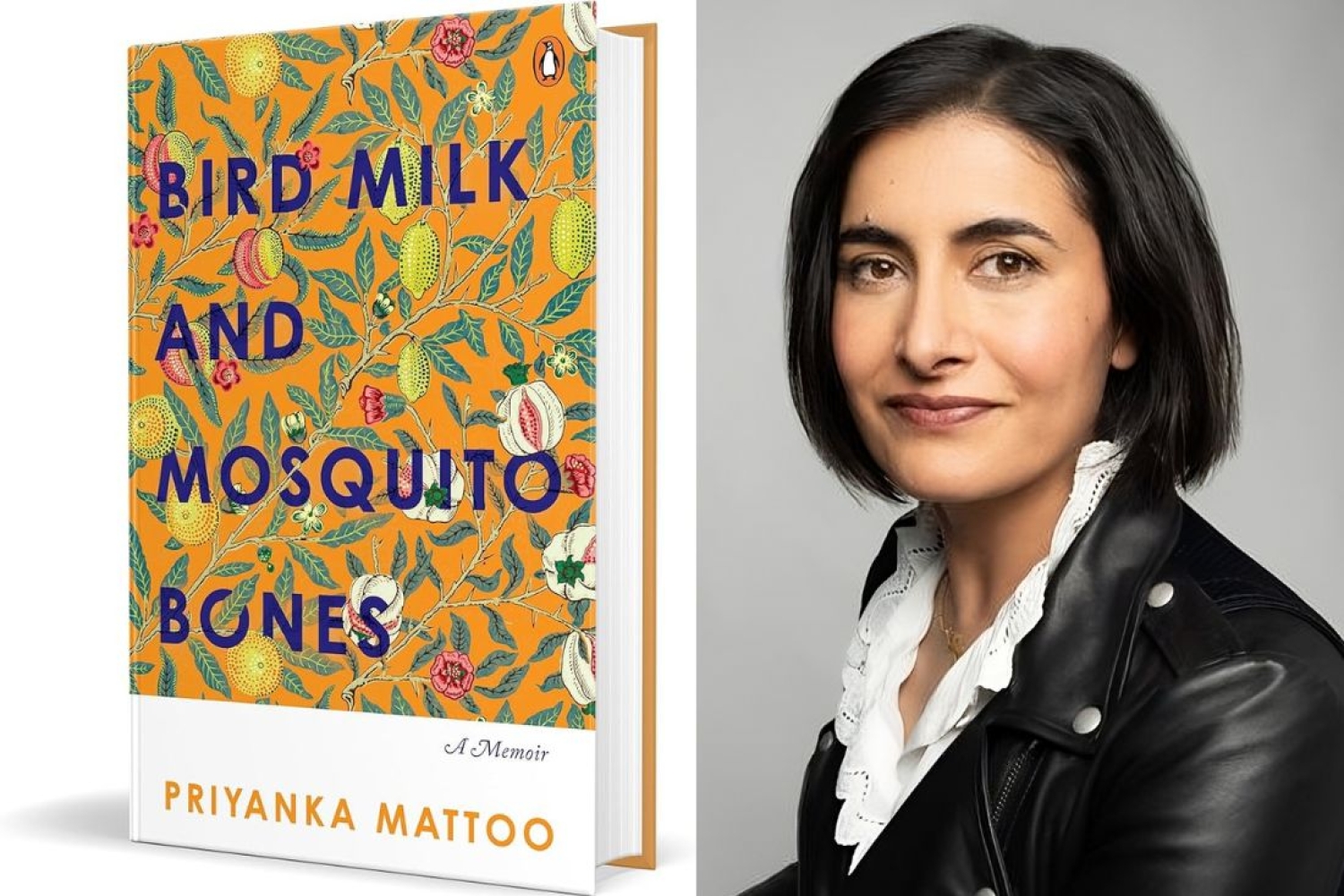

Priyanka Mattoo is a brilliant, wry, and fresh voice in the literary world. This talent agent turned writer makes quite the impression with her debut novel, a memoir titled Bird Milk and Mosquito Bones. This unusual yet beautiful Kashmiri phrase translates to “something so rare and precious that the listener should question its existence”. The collection of essays chronicles her life, from her childhood in Kashmir to growing up in Saudi Arabia, the essays span across continents and postcodes.
Matto holds degrees in Italian and Law and is the co-founder of the all-women podcast network called EARIOS. She now lives in Los Angeles with her husband and children. We sat with her for a conversation about her newly released memoir and her creative process.
Describe yourself in 5 words.
Curious, excitable, hungry, impatient, bookworm!
The title of your memoir is eye-catching and incredibly unique, what's the story behind it?
The book was originally meant to be a lighthearted series of essays about food, family, and moving, and was sold with the original title, Sixteen Kitchens. In writing, though, it became so much more expansive than the book I had in mind, so I looked at the manuscript and realized I needed a new title, and I knew I wanted it to be Kashmiri-adjacent. I write in the book about my love for the Kashmiri language — so sharp, funny, and specific — and I knew I wanted the title to be rooted in our language, so I went for many long walks, talked to family members, and pored over books of colloquial phrases until I came across “chhari daud te mahi adij,” or bird milk and mosquito bones — a phrase used to signify things so rare and precious that the listener should question their existence, and I thought it was the perfect reference to the home in Srinagar we built and lost.
Who are your primary literary influences? Tell us about what inspires your work.
I love highbrow literary writers as much as any reader, but the writers that resonate with me the most are clear, steady, and have a sense of humor. I love Susan Orleans’s writing — her book Saturday Night is a foundational text for me. I know everyone loves Elif Batuman’s novels, as do I, but her memoir The Possessed is one I read and reread. Laurie Colwin is what I read every time I feel like I’m overwhelmed by the work: Her gorgeous book of essays Home Cooking, or her novel Happy All the Time. Her writing isn’t fancy, but it’s evocative and effective in a way that I hope I can be as well.
Walk us through your creative process and the conceptualization of your latest novel.
I work in spurts because I will usually wake up fixated on something — a song, a flower, a place — or irritated by something, and then spend a few weeks figuring out why. I’ll drive, swim, go to the shop, muttering to myself about it, jotting down any clear thoughts I have. I’ll discuss that fixation with everyone I meet, which is a lot of people, and incorporate their insights. Usually, this brings up a collection of family stories that explain why I feel such a strong pull or aversion, as well as outside perspectives from others who may feel differently. Then I read a little about the subject while trying not to disappear into it. Poems, lyrics, news, and I keep any relevant scraps. And at some point, I sit down to organize my thoughts. It’s a bit like building a mosaic, for me. Then when it feels right, I move on to the next chapter. I wish my process were more complicated than that, but it’s not. Just a continuous asking “why,” and connecting with others to figure it out.
Your writing is a beautiful blend of humor and gravitas. How did you develop your distinct style?
Thank you! I have heard the tone is unusual, but I say no one is funnier than a woman who’s seen some serious things. I cover a lot of heavy ground in the book — family histories, Kashmir, war, and even a crime, but my entire family has always dealt with hardship by learning to laugh about it. My husband finished the book and said that reading it is exactly like hanging out with me, so I suppose I developed it by living the life described in the book.
Do you have any exciting creative projects that you are working on now?
I’ve sold a second book of essays to my publisher, about reconnecting with pleasure and joy without blowing up our lives. We have so many incredible narratives in the last few years about women who hit their 40s and leave their families, fed up with the drudgery, and I applaud them. But I don’t want to leave! I like my life, and I love my family. I think within this admittedly conventional context I also want to maximize my joy at all times. On the screenwriting front, I’m working on a pilot script for CBS about an Indian-American woman detective, and a feature film adaptation of my short film The Homestay. It’s a romantic comedy about an older couple who are soulmates but will never admit it — and you may recognize that language from the chapter about my parents.
Words Aliya Anand
Date 19.07.2024